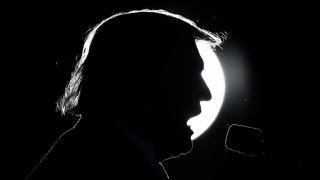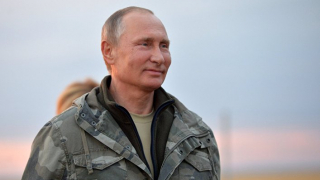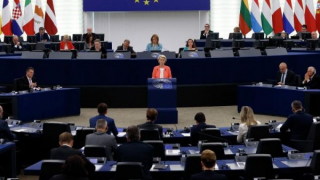18.10.2017
Russia needs Novorossiya and Malorossiya - at least the part of Malorossiya that is east of the Dnepr river. These parts are not "ukrainian", they...
24.10.2024
For his supporters, Donald Trump is a bulwark of traditionalism and a champion of ‘America First’. For his detractors, he is a disruptive, deceitful...
17.06.2022
The speaker of the Duma, Vyacheslav Volodin, may have created the defining acronym for the emerging multipolar world: “the new G8”.
As Volodin noted...
03.02.2021
“They make their plans and weave their strategies. But also God does it. God is the Lord of strategies.”
09.04.2017
Vladimir Putin yesterday said that “95% of the world’s terrorist attacks are orchestrated by the CIA,” and the St. Petersburg metro bombing must be...
06.10.2024
Alexander Dugin contends that Donald Trump’s rhetoric is reshaping the American political landscape by addressing the growing discontent with the...
21.10.2024
In essence, we are changing our ideology for the third time in 35 years. Until the early 1990s, society was under the dictatorship of Marxism-...
19.07.2018
There are a number of elements in the recent release of an indictment of twelve named alleged Russian military intelligence GRU officers by Deputy...
01.10.2021
We meet the scholar Alessandro Fanetti, author of the book “Russia: in search of the lost power” (Edizioni Eiffel, 2021) [1], to face the reality of...
02.10.2024
When the European Union as a political institution was established on 1 November 1993 with the Maastricht Treaty, following the already established...
26.10.2022
The first and most important statement is that Russia is an independent, original civilization. This statement is the axis around which there should...
16.10.2024
As you know, “whoever pays, dances the girl,” and this is no exception for the US political system. Certain forces are interested in the victory of...














